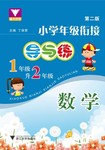题目内容
Everybody dreams. Some people think dreams can tell us about the future. Other people think dreams tell us about ourselves. It's like our 61 is talking to us. Why are dreams 62 strange and hard to understand? Some people think our brain uses 63 to talk to us. When we fly, swim, or fall down in our dreams, it has a 64 meaning. Lots of doctors help people 65 their dreams. They find that dreams tell us about our 66 and fears.
These days, many scientists 67 that dreams are very important. During the day, we have many 68, and our brain receives a lot of information. When we dream, our brain 69 information that is not important, and puts the most important information into our 70. As we learn more about the brain, we may find answers to our questions about dreams.
61. A. body B. spirit C. brain D. heart
62. A. never B. seldom C. ever D. often
63. A. symbols B. examples C. numbers D. pictures
64. A. special B. serious C. similar D. great
65. A. finish B. forget C. understand D. continue
66. A. hopes B. rights C. positions D. abilities
67. A. reply B. believe C. doubt D. worry
68. A. experiences B. dreams C. mistakes D. inventions
69. A. passes on B. looks into C. throws away D. asks for
70. A. feelings B. stories C. lives D. memories
【主旨大意】本篇短文介绍了一篇科普小短文,一般认为做梦可以预测未来,其实梦是个人对于自身经历和体验的重新再现,从这点科学家可以解释梦仅仅是大脑的对事物的部分映射,片面的可以理解为预测。
61. C 通读上下文,特别由上文的做梦可以预测未来、下文中也题到了our brain可知,也就正如我们的“大脑”在和我们说话,因此选择答案C.
62. D 为什么梦常常是奇怪的难以理解的?实际情况也是这样,而不是很少或从来没有。
63. A 结合上下文,做梦能预测未来只是一种标志或符号,并不是例子或图片。
64. A 做梦中的飞或什么的,只能具有特殊的意思,不会和实际相同或有什么伟大意义。
65. C 我们平常也说“解梦”,understand the dreams.
66. A 总结本段意思就是:做梦可以预测未来,也就是梦可以告诉我们对未来的恐怖与希望hopes.
67. B 通读全文,概括本段意思,科学家相信梦时候总要的,并非怀疑、担心或回答。
68. A 空后的and是并列连词,后面是大脑得到很多信息;前面是我们有很多的经历experiences.
69. C 这里解释了做梦就是大脑摒弃(throw away)了不重要的信息,保留了重要的。
70. D 我们的大脑是把重要信息储存在记忆力memories里面,才形成了梦。

 浙大优学小学年级衔接导与练浙江大学出版社系列答案
浙大优学小学年级衔接导与练浙江大学出版社系列答案 小学暑假作业东南大学出版社系列答案
小学暑假作业东南大学出版社系列答案 津桥教育暑假拔高衔接广东人民出版社系列答案
津桥教育暑假拔高衔接广东人民出版社系列答案 波波熊暑假作业江西人民出版社系列答案
波波熊暑假作业江西人民出版社系列答案